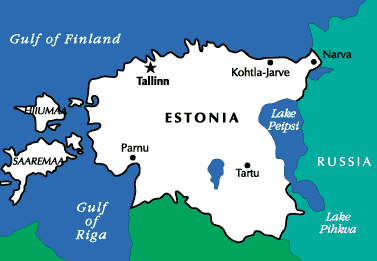Stand-off in Estonia over legislators' wage freeze
 Tallinn - Parliament and president were locked in a legislative stand-off in Estonia on Tuesday after the Estonian parliament, the Riigikogu, passed a bill on freezing the wages of deputies for a second time.
Tallinn - Parliament and president were locked in a legislative stand-off in Estonia on Tuesday after the Estonian parliament, the Riigikogu, passed a bill on freezing the wages of deputies for a second time.
President Toomas Hendrik Ilves refused to sign the same piece of legislation last week.
The effort by Estonian parliamentarians to freeze their own salaries as part of a national austerity plan was blocked on November 24 when Ilves refused to sign the relevant bill into law, saying that it was contrary to the constitution.
However, on Tuesday the parliament passed the bill for a second time with no changes made to its wording. It passed by 58 votes to 1.
Ilves must now decide whether to backtrack on his earlier decision and sign the bill into law or send the matter to the Supreme Court for a ruling on whether it is unconstitutional.
A presidential spokesperson told Deutsche Presse Agentur dpa Ilves was likely to reject the bill for a second time, using the same arguments he has previously used, namely that parliament cannot tinker with members' salaries in this way.
Ilves argued that according to the constitution, legislators can set their salaries for each incoming legislature but cannot do so again until the next parliament is formed.
"Article 75 of the Constitution unambiguously prohibits making the provisions pertaining to limitations concerning members' of parliament pay and other remuneration favorable or less favorable for the members of parliament currently in office," Ilves said in his judgment the first time around.
The proposals to freeze parliamentary salaries and peg them to the national average first surfaced in June, but by September Ilves had already voiced concern about their constitutional validity. (dpa)